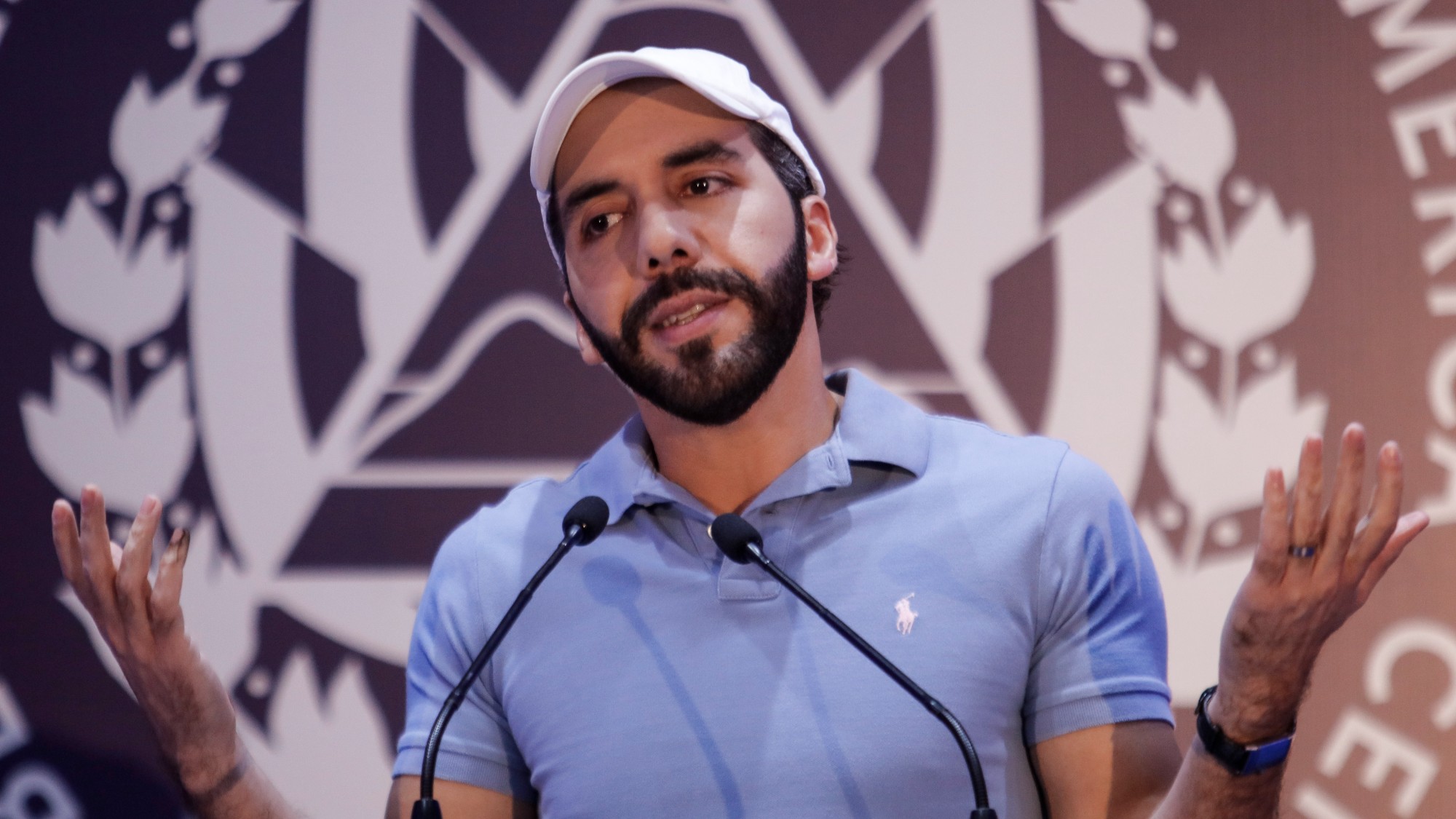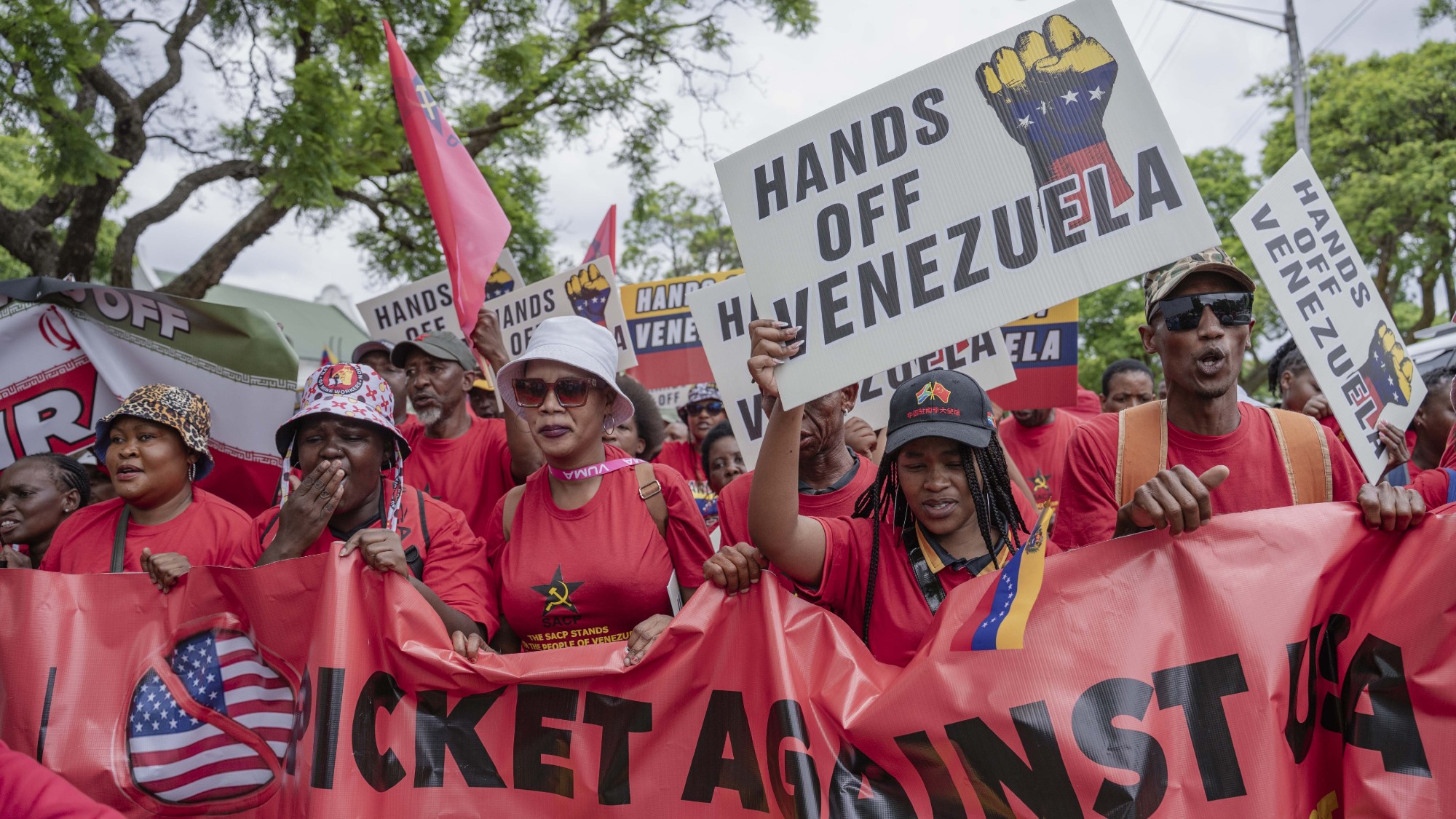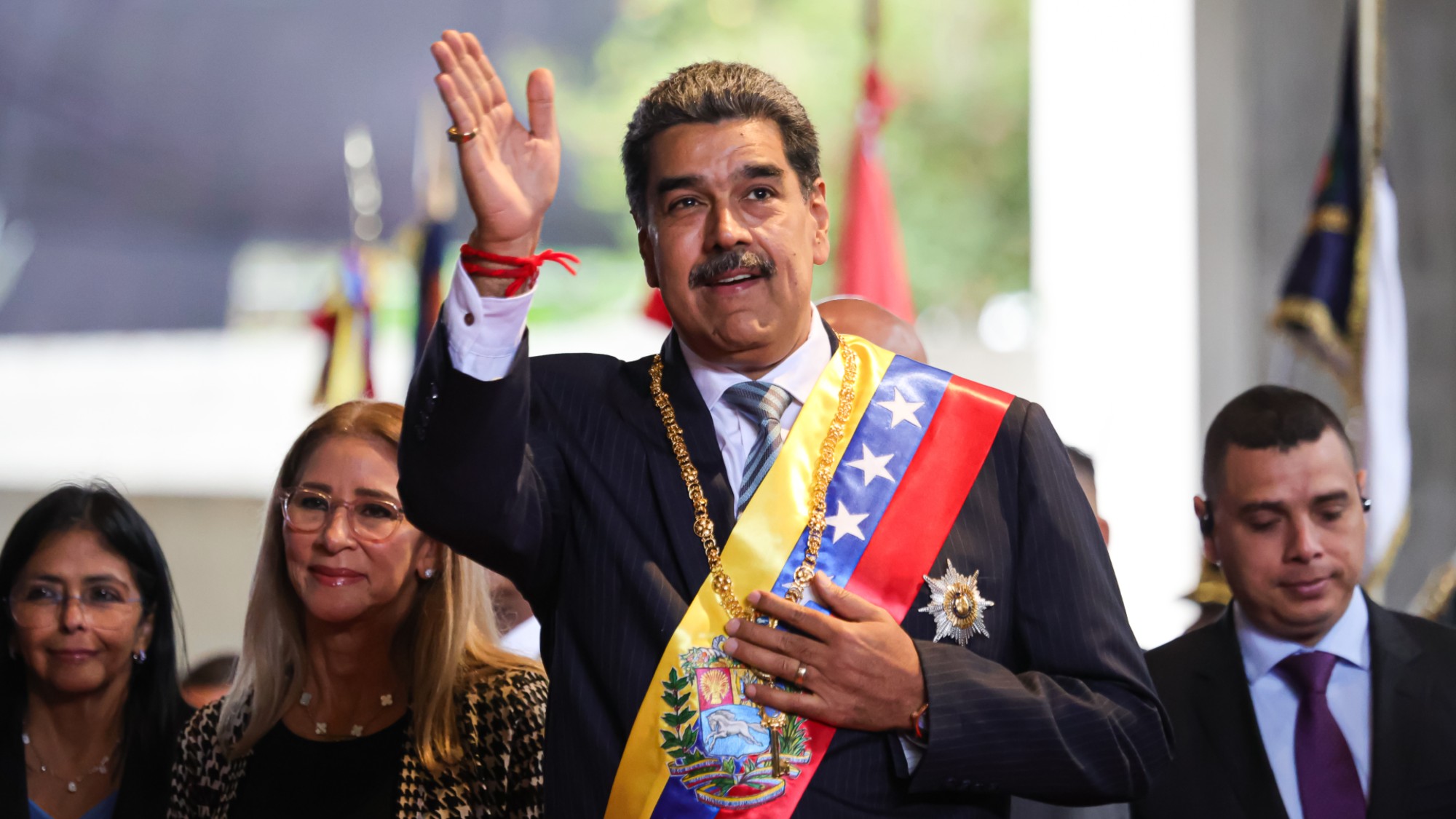El Salvador: the iron fist of 'the world’s coolest dictator'
Nayib Bukele has won re-election as El Salvador's president in a landslide vote

A free daily email with the biggest news stories of the day – and the best features from TheWeek.com
You are now subscribed
Your newsletter sign-up was successful
To right-wingers, it's a beacon of light for the rest of the continent; for liberals, it's a warning signal to all of Latin America. Either way there's no denying the significance of what has been happening in El Salvador, said Ishaan Tharoor in The Washington Post.
Under President Nayib Bukele, who has just won re-election in a landslide, the country has shifted from a functional multiparty democracy "to a de facto one-party state".
In his first term, he packed the constitutional court with loyalists, thereby managing to sidestep a ban on presidents seeking consecutive terms. And, last week, he duly triumphed again at the polls, winning 87% of the vote for himself as president, while his Nuevas Ideas party won control of the national legislature. His astonishing popularity hinges on one thing only: his sweeping crackdown on El Salvador's gangs and cartels. Within the space of a few years, El Salvador's once "world-leading homicide rates" have been dramatically reduced, and Salvadorans have enjoyed a sense of safety they could previously only dream of.
The Week
Escape your echo chamber. Get the facts behind the news, plus analysis from multiple perspectives.

Sign up for The Week's Free Newsletters
From our morning news briefing to a weekly Good News Newsletter, get the best of The Week delivered directly to your inbox.
From our morning news briefing to a weekly Good News Newsletter, get the best of The Week delivered directly to your inbox.
A self-styled 'philosopher king'
With his "sunglasses and leather jacket", Bukele once jokingly styled himself on X/Twitter as "the world's coolest dictator", said Carmen Quintela in El Diario (Madrid), though now he calls himself "philosopher king". Born into a wealthy family with Palestinian roots, he was still at school when El Salvador's 13-year civil war ended in 1992. As a youth, he hardly had the makings of a right-wing dictator: he dropped out of law school, spent much of his 20s managing nightclubs, and joined FMLN, a left-wing rebel group turned political party.
At 34, he was elected mayor of San Salvador on an FMLN ticket, vowing to reclaim dangerous areas from gangs, but was expelled from the party and set up his own. And it was on an anti-crime agenda that he was first elected president in 2019. Within a year, he'd embarked on his "Territorial Control Plan" to rid El Salvador of the "gang violence and extortion" that was plaguing the country.
His success has been extraordinary, said Diario El Salvador. Before Bukele came to power, El Salvador was one of the world's most dangerous countries: the streets of the capital, San Salvador, "were filled with corpses". Yet Bukele's "courage and determination" has changed all that. In 2018, the homicide rate was 51 per 100,000 people: last year it was just 2.4 per 100,000 (about half the level of the US); shops no longer have to pay protection money; people can leave their homes without fear.
Bukele's inhumane crackdown
None of that has been achieved by some miracle of good governance, said Catherine Ellis on Al Jazeera (Doha): it's the result of a truly draconian clampdown on civil liberties. Bukele has let police arrest anyone they suspect of gang links. Some 75,000 people have been jailed since he imposed a state of emergency in 2022, said Juan Diego Quesada in El País (Madrid).
A free daily email with the biggest news stories of the day – and the best features from TheWeek.com
Those arrested, seldom given a proper trial, are housed in El Salvador's hideous 40,000-capacity "mega jail". Their heads are shaved, their hands and feet shackled, and they never see daylight. Bukele's crackdown might be popular, but it's astonishingly inhumane.
Nor have Bukele's policies – including his eccentric decision in 2021 to make bitcoin legal tender – done anything to improve the economy, said Julia Gavarrete in El Faro (San Salvador). El Salvador is still one of Central America's weakest economies; much of its 6.5 million-strong population can't afford basic staples. But that hasn't stopped other leaders in the region looking to El Salvador as the nation to copy, said Will Freeman and Lucas Perelló in The New York Times.
But in truth, a Bukele-style crackdown is unlikely to work elsewhere. Unlike the big cartels in other Latin American countries, Salvadoran gangs – poorly financed and less well armed – have never been big players in the drugs trade: their focus has been extortion. When Bukele arrested their foot soldiers, they collapsed. That won't happen in places such as Mexico, Colombia and Brazil. Latin American leaders might envy Bukele for his popularity, but they face a chaotic battle with their own gangs if they try to take them on – and will do "lasting damage to democracy" in the process.
-
 Switzerland could vote to cap its population
Switzerland could vote to cap its populationUnder the Radar Swiss People’s Party proposes referendum on radical anti-immigration measure to limit residents to 10 million
-
 Political cartoons for February 15
Political cartoons for February 15Cartoons Sunday's political cartoons include political ventriloquism, Europe in the middle, and more
-
 The broken water companies failing England and Wales
The broken water companies failing England and WalesExplainer With rising bills, deteriorating river health and a lack of investment, regulators face an uphill battle to stabilise the industry
-
 The UK expands its Hong Kong visa scheme
The UK expands its Hong Kong visa schemeThe Explainer Around 26,000 additional arrivals expected in the UK as government widens eligibility in response to crackdown on rights in former colony
-
 ‘Hong Kong is stable because it has been muzzled’
‘Hong Kong is stable because it has been muzzled’Instant Opinion Opinion, comment and editorials of the day
-
 Japan’s Takaichi cements power with snap election win
Japan’s Takaichi cements power with snap election winSpeed Read President Donald Trump congratulated the conservative prime minister
-
 ‘The economics of WhatsApp have been mysterious for years’
‘The economics of WhatsApp have been mysterious for years’Instant Opinion Opinion, comment and editorials of the day
-
 How realistic is the Democratic plan to retake the Senate this year?
How realistic is the Democratic plan to retake the Senate this year?TODAY’S BIG QUESTION Schumer is growing bullish on his party’s odds in November — is it typical partisan optimism, or something more?
-
 EU-Mercosur mega trade deal: 25 years in the making
EU-Mercosur mega trade deal: 25 years in the makingThe Explainer Despite opposition from France and Ireland among others, the ‘significant’ agreement with the South American bloc is set to finally go ahead
-
 A running list of US interventions in Latin America and the Caribbean after World War II
A running list of US interventions in Latin America and the Caribbean after World War IIin depth Nicolás Maduro isn’t the first regional leader to be toppled directly or indirectly by the US
-
 Nicolás Maduro: from bus driver to Venezuela’s president
Nicolás Maduro: from bus driver to Venezuela’s presidentIn the Spotlight Shock capture by US special forces comes after Maduro’s 12-year rule proved that ‘underestimating him was a mistake’